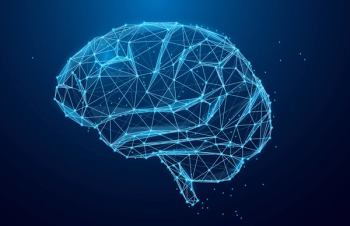
Psychedelics Research Roundup: September 22
What is new in research on psychedelics?
In this Research Roundup, we explore new studies on attitudes about the safety, efficacy, and feasibility of psychedelics as a treatment for mental health disorders including treatment-resistant depression.
Psilocybin in the Treatment of TRD
This article discusses the use of serotonergic agonists such as psilocybin in treating treatment-resistant depression (TRD). In it, the investigators highlight that, although there is growing interest in this treatment, there are challenges in interpreting its effects in clinical trials. The investigators also point out that the role of psychotherapy alongside psilocybin treatment is not as significant as is commonly assumed, and that there is a need for further research to establish psilocybin as an efficacious treatment for depression.
“The challenge for the future, along with safe delivery of the experience, appears likely to be the choice of appropriate additional treatment which may have the potential to enhance outcomes in the long term, be it pharmacological, neurostimulatory, or psychotherapeutic,” the investigators concluded. “For the present, however, the challenge is to complete a convincing phase 3 program leading to eventual approval of psilocybin as a medicine.”
Reference
Goodwin GM. T
Examining Attitudes About Psychedelics in the Treatment of Mental Health Conditions
This study examined the attitudes of Australian politicians and key stakeholders toward using psychedelic agents for mental health treatment in supervised settings. In the study, both politicians and stakeholders expressed cautious optimism about this approach but raised concerns about the lack of sufficient research on the treatment’s efficacy and feasibility. The politicians also mentioned that the attitudes surrounding psychedelics could hinder legislative support.
In general, the study investigators concluded that, “additional research and a clear presentation of this research are needed before the clinical use of psychedelics can be supported.”
Reference
Kunstler BE, Smith L, Langmead CJ, et al.
Hallucinogens, Wellbeing, and Posttraumatic Growth After the Pandemic
This longitudinal, transcultural study examined the relationship between hallucinogenic drug use, psychological wellbeing, and psychopathology scales during the COVID-19 pandemic. The study results showed that hallucinogenic drug use was associated with lower levels of psychological distress and higher levels of wellbeing and posttraumatic growth. The study highlights the need for policy changes to align with scientific evidence regarding the potential benefits of these substances.
“Overall, these findings have public policy implications that should be addressed,” the investigators concluded. “Further research should elucidate the role of hallucinogenic drugs in large-scale catastrophes, such as pandemics and wars.”
Reference
Bouso JC, Révész D, Ona G, et al.
Note: Assistance from ChatPDF and ChatGPT was used in the preparation of this research roundup.
Let us hear from you! Want to share your insights with colleagues on the latest research on psychedelics, posttraumatic stress disorder, and other psychiatric disorders and issues? Write to us at PTEditor@mmhgroup.com.
Newsletter
Receive trusted psychiatric news, expert analysis, and clinical insights — subscribe today to support your practice and your patients.







